RESEARCH & FACULTY
CARDIOVASCULAR & PULMONARY BIOLOGY
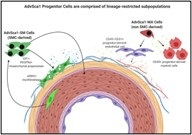
The cardiovascular system includes the heart and all blood vessels delivering oxygen to tissues and the transporting metabolic waste products to be cleared from the body. The pulmonary system includes the trachea (windpipe), the lungs, the muscles and bones of the rib cage, and the diaphragm. It transports oxygen to the blood and extracts carbon dioxide, along with directly interacting with external pollutants, bacteria, and viruses. Faculty study the molecular features that lead to diseased tissue and aim to leverage this information to design novel treatments and therapeutic strategies.

John Bankston PhD
(He/Him/His)
Associate Professor
Completed Mentor Training Course; Completed Implicit Bias Training
We are interested in the molecular mechanisms of cellular excitability in the heart and brain. Our focus is on two different families of ion channels, the acid-sensing ion channels (ASICs) and hyperpolarization-activated cyclic nucleotide-modulated (HCN) channels. We study the structural and physiological mechanisms of channel function for each class of channel including how these channels are regulated by other proteins as well as the lipid membrane. To do this we use a combination of patch clamp, FRET, single-molecule fluorescence, and biochemistry.
Email:[email protected]

Fabrice Dabertrand PhD
Associate Professor
Completed Upstander/Bystander Training; Completed Implicit Bias Training; Completed Mentor Training Course
The control of cerebral blood flow by ion channels and calcium signaling in the pericytes, endothelial cells, and smooth muscle cells that constitute the parenchymal microcirculation, and use this information to combat brain diseases with a vascular component.
Email:[email protected]
Phone:3037243792
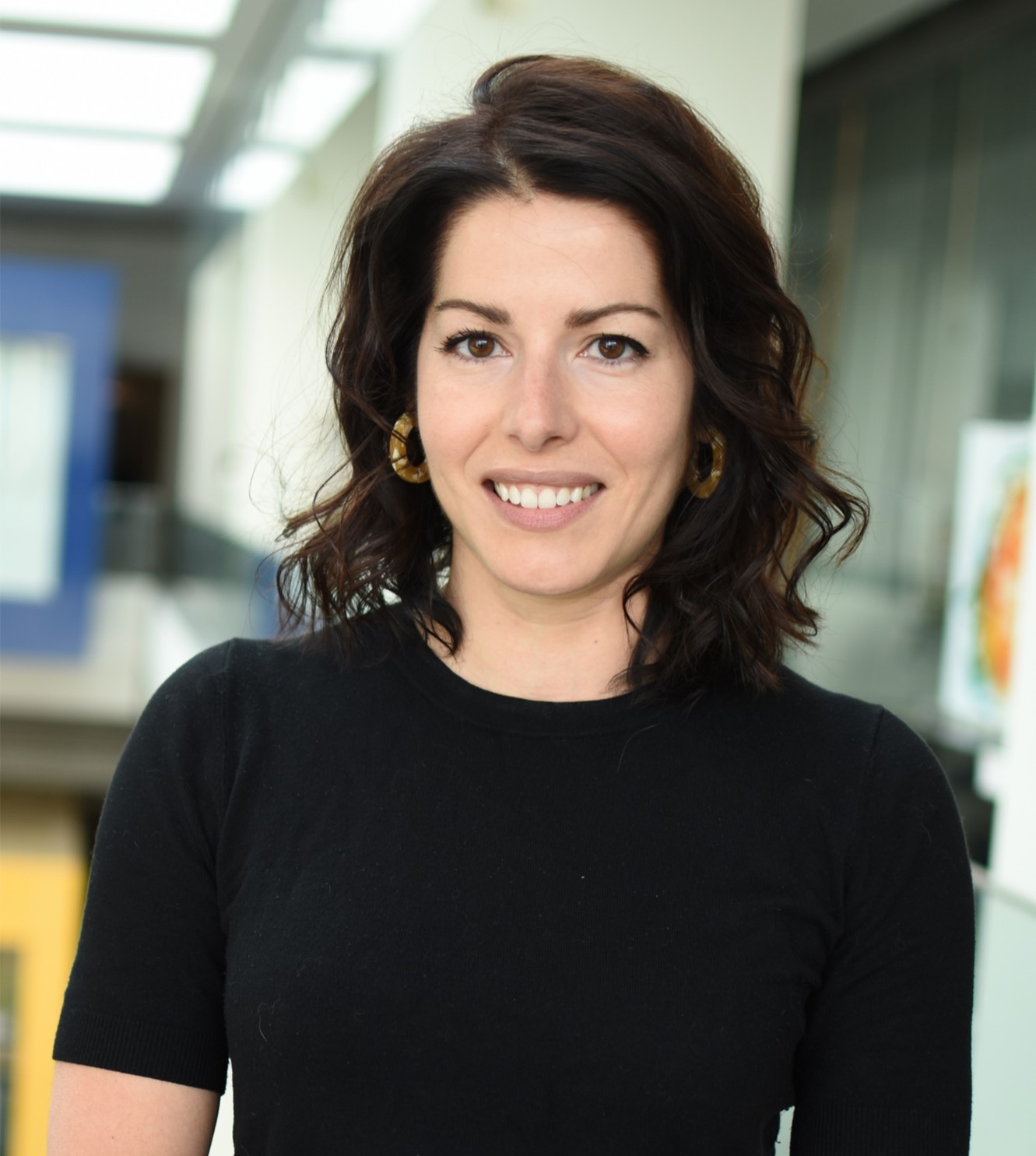
Ana I. Fernandez-Marino MSc, PhD
Assistant Professor
Every second, our body hums with electricity—not just from your heartbeats or brainwaves, but from a vast internal network of charged particles flowing across cell membranes. This silent symphony is orchestrated by ion channels—protein gates that control the movement of ions like sodium, potassium, and calcium across the cell membrane. They’re fundamental to how our brain thinks, our heart beats, and even how we feel pain or move our muscles. But when these channels malfunction—due to genetic mutations or environmental factors—it can lead to serious diseases, from epilepsy and cardiac arrhythmias to chronic pain syndromes and muscle disorders. My lab uses electrophysiological techniques to measure the voltage-gated ion channel function in real time and structural biology to visualize the 3D architecture of these membrane proteins at near-atomic detail. By understanding how these channels gates open, close, and misbehave in disease, we can pinpoint the root causes of these channelopathies and, ultimately, guide the development of targeted therapies like nanobodies that can restore their proper function.
Email:[email protected]
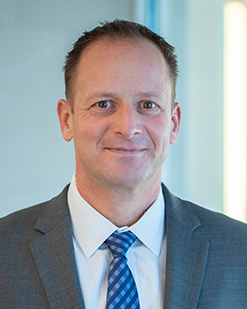
Tim Lahm MD
Professor
Dr. Lahm is a physician scientist in the Division of Pulmonary, Critical Care and Sleep Medicine with a focus on the study of sexual dimorphisms in lung vascular remodeling and right ventricular (RV) adaptation in pulmonary hypertension (PH).
Email:[email protected]
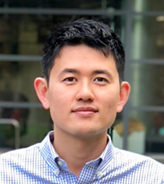
Edward Lau PhD
Assistant Professor
Completed Mentor Training Course; Completed Upstander/Bystander Training
Our lab has a broad range of research interests, encompassing several areas of biochemistry and cell biology:
(1) Protein turnover: development and application of stable isotope labeling mass spectrometry methods to measure protein half-life.
(2) Spatial proteomics: subcellular distributions of proteins, interaction between spatial and temporal protein dynamics.
(3) Cellular physiology: cellular crosstalk by secretome proteins, signatures of cellular senescence, cardiotoxicity and proteostatic disruptions in induced pluripotent stem cell models.
(4) Bioinformatics: correlation and discrepancies of transcript and protein levels, protein prediction with machine learning.
Email:[email protected]

Timothy McKinsey PhD
Professor
Epigenetic regulation of heart failure; signaling and transcriptional mechanisms of muscle disease.
Email:[email protected]
Phone:3037245476
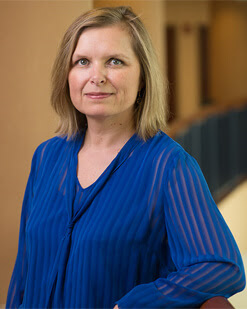
Irina Petrache MD
Professor
Research interests include: Alpha 1 antitrypsin biology; Chronic Obstructive Pulmonary Disease (COPD); Lung Cell Biology; Lung Inflammation; Lung Injury and Repair; Pulmonary Vascular Disease; Regenerative Medicine; Sphingolipid signaling and metabolomics; and Vascular Biology.
Email:[email protected]

Catherine Proenza PhD
Professor
One major focus of the lab is to understand the molecular basis for pacemaker activity within individual sinoatrial node myocytes (SAMs). To this end, we use patch clamp electrophysiology to record spontaneous action potentials and membrane currents from isolated SAMs from mice. We also use advanced patch clamp techniques like AP clamp and dynamic clamp to isolate and manipulate individual currents in SAMs.
Email:[email protected]
Phone:3037242522

Carmen Sucharov PhD
Professor
Our main goal is to identify potential new therapeutic agents for the treatment of heart failure.
Email:[email protected]
Phone:3037245409

Mary Weiser-Evans PhD
Professor
Integrated Physiology Program Director
Completed Upstander/Bystander Training; Completed Unconscious Bias Workshop; Completed Resecting Others in the Workplace Workshop; Completed CIMER Facilitator Training
Our laboratory focuses on vascular biology, with particular emphasis on smooth muscle cell (SMC) signaling and understanding the regulation of SMC phenotypic modulation in disease.
Email:[email protected]
Phone:3037244846
STRUCTURAL BIOLOGY
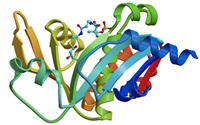 Many of the faculty utilize multi-omics data and molecular structure to define how and where pharmacological processes occur. Knowledge of the omics profiles from an individual allows us to define the target of pharmacologically important molecules. Defining the molecular structure of the target protein allows pharmacological mechanisms of molecules to be defined. The centers and facilities that aid in this research include the Genomics Shared Resource, Mass Spectrometry Center, Nuclear Magnetic Resonance Center, Electron Microscopy Facility, and the X-ray Crystallography Center.
Many of the faculty utilize multi-omics data and molecular structure to define how and where pharmacological processes occur. Knowledge of the omics profiles from an individual allows us to define the target of pharmacologically important molecules. Defining the molecular structure of the target protein allows pharmacological mechanisms of molecules to be defined. The centers and facilities that aid in this research include the Genomics Shared Resource, Mass Spectrometry Center, Nuclear Magnetic Resonance Center, Electron Microscopy Facility, and the X-ray Crystallography Center.

Ulli Bayer PhD
Professor
Completed Mentor Training Course
Our field is molecular and cellular neuroscience. Specifically, we are interested in the molecular and cellular mechanisms underlying learning, memory and cognition. We also want to know how these mechanisms go wrong in disease, and how this could be repaired by new therapeutic strategies.
Email:[email protected]
Phone:3037243610
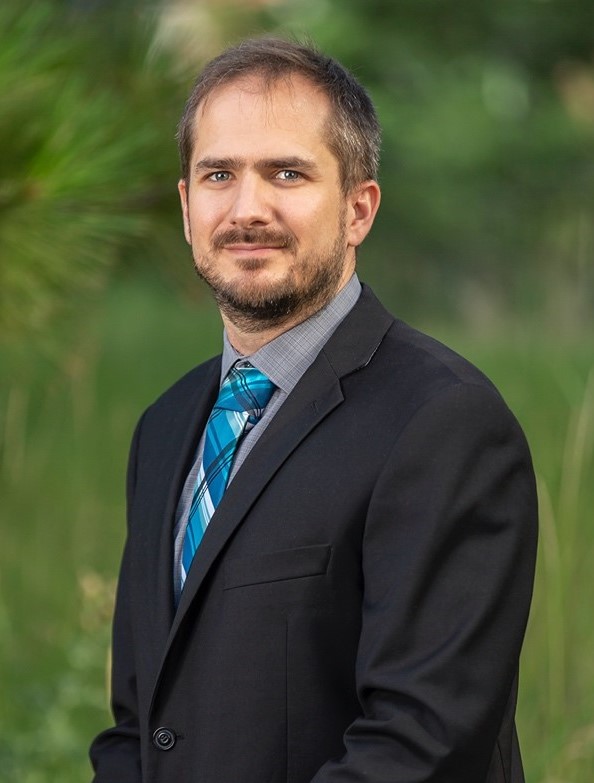
Benjamin Bitler PhD
Associate Professor
Completed Mentor Training Course; Completed Upstander/Bystander Training
Dr. Bitler is committed to the fight against cancer through his work to elucidate the impact of cancer-related signaling and epigenetic regulation.
Email:[email protected]
Phone:3037240574
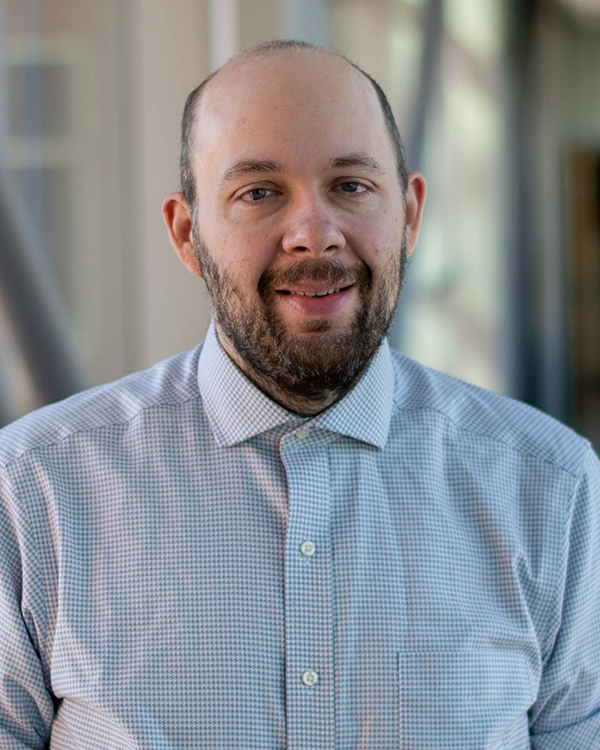
Joshua Black PhD
Assistant Professor
Completed Mentor Training Course; Completed Upstander/Bystander Training
My lab studies how cells use epigenetics to control gene amplifications. We have identified epigenetic pathways that cells use to create transient increases in gene copy number. These copy number changes play roles in tumor development, progression and drug resistance. By understanding the fundamental mechanisms that govern copy number control we hope to allow better cancer therapies.
Email:[email protected]

M. Cecilia Caino PhD
(she/her/hers)
Assistant Professor
Facilitated and Completed Mentor Training Course; Completed Upstander/Bystander Training, Completed Equity Certificate,
Our group aims to understand how mitochondria reprogramming in tumors impact cellular behaviors that drive progressive and lethal cancer. We use a broad repertoire of biochemistry, cell biology, live cell imaging and animal models to study the impact of mitochondria shape, number and subcellular distribution in metastatic dissemination.
Email:[email protected]

Ana I. Fernandez-Marino MSc, PhD
Assistant Professor
Every second, our body hums with electricity—not just from your heartbeats or brainwaves, but from a vast internal network of charged particles flowing across cell membranes. This silent symphony is orchestrated by ion channels—protein gates that control the movement of ions like sodium, potassium, and calcium across the cell membrane. They’re fundamental to how our brain thinks, our heart beats, and even how we feel pain or move our muscles. But when these channels malfunction—due to genetic mutations or environmental factors—it can lead to serious diseases, from epilepsy and cardiac arrhythmias to chronic pain syndromes and muscle disorders. My lab uses electrophysiological techniques to measure the voltage-gated ion channel function in real time and structural biology to visualize the 3D architecture of these membrane proteins at near-atomic detail. By understanding how these channels gates open, close, and misbehave in disease, we can pinpoint the root causes of these channelopathies and, ultimately, guide the development of targeted therapies like nanobodies that can restore their proper function.
Email:[email protected]

Blake Hill
Professor
Chair of Pharmaceutical Sciences
We investigate how mitochondrial quality control works at the molecular level and how its failure drives lethal encephalopathies and contributes to neurodegenerative, cancer, cardiac, and other diseases. Our lab integrates multi-scale approaches—from purified molecules to whole organisms—anchored in structural biology and biophysical principles to reveal how biomolecular interactions govern mitochondrial and human health.
Email:[email protected]
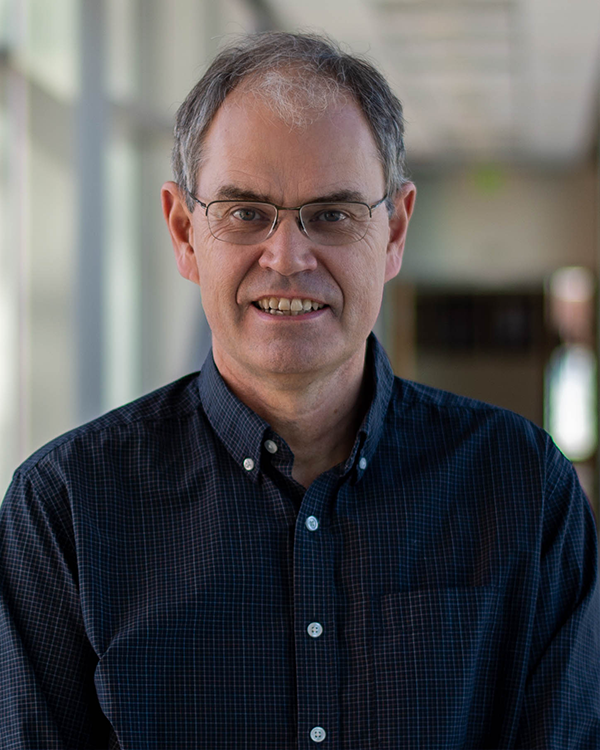
David Jones PhD
Associate Professor
Research in my lab uses NMR spectroscopy, X-ray crystallography, molecular biology and biophysical approaches to answer the fundamental questions of how mediators of signal transduction interact with proteins of neuronal signaling pathways.
Email:[email protected]
Phone:3037243600
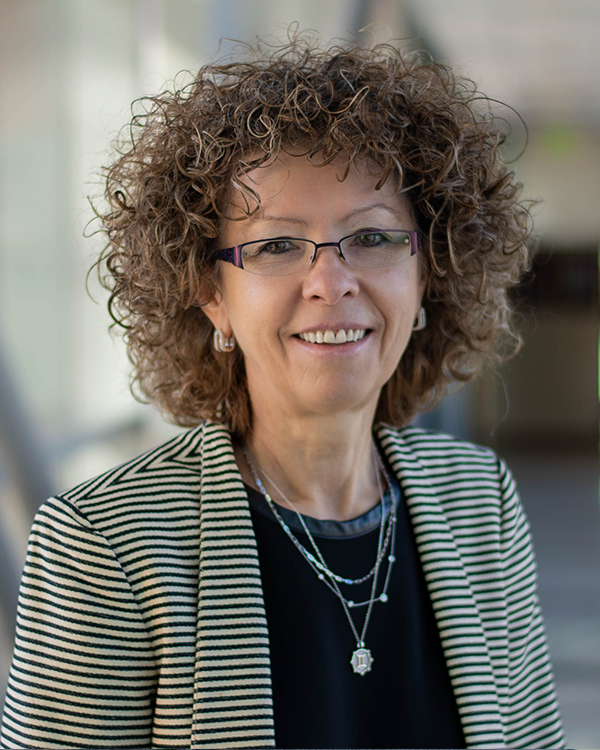
Tatiana Kutateladze PhD
Professor
My laboratory investigates molecular mechanisms of epigenetic regulation and the role of chromatin modifications in human diseases. We use high field NMR spectroscopy and X-ray crystallography to obtain atomic-resolution structures of chromatin-binding proteins and complexes involved in transcription and DNA damage repair.
Email:[email protected]
Phone:3037243593

Edward Lau PhD
Assistant Professor
Completed Mentor Training Course; Completed Upstander/Bystander Training
Our lab has a broad range of research interests, encompassing several areas of biochemistry and cell biology:
(1) Protein turnover: development and application of stable isotope labeling mass spectrometry methods to measure protein half-life.
(2) Spatial proteomics: subcellular distributions of proteins, interaction between spatial and temporal protein dynamics.
(3) Cellular physiology: cellular crosstalk by secretome proteins, signatures of cellular senescence, cardiotoxicity and proteostatic disruptions in induced pluripotent stem cell models.
(4) Bioinformatics: correlation and discrepancies of transcript and protein levels, protein prediction with machine learning.
Email:[email protected]
SIGNAL TRANSDUCTION
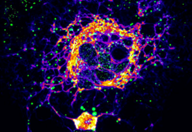
How the activities of different cell types are harmonized to provide integrated responses in an organism is the key feature that allows multi-celled organisms to flourish. This coordination is achieved by the activities of an array of neurotransmitters, hormones, and growth factors, which operate on timescales of milliseconds to days. The study of these processes is known as signal transduction, or cellular signaling, one of the key areas of biomedical research that tells us about normal functions and therapeutic opportunities. The majority of faculty study cellular signaling at some level, including ion channels, signal transduction pathways, second messengers, growth factor-signaling, and the cell cycle.
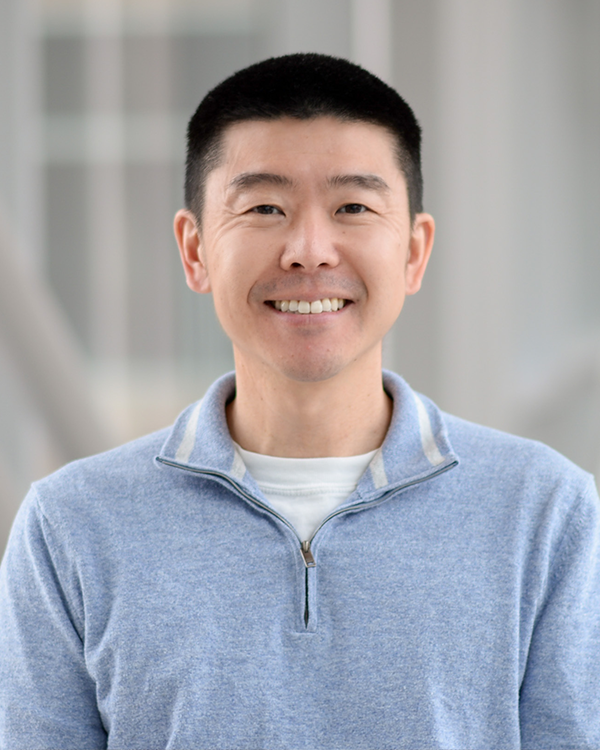
Jason Aoto PhD
Associate Professor;
Director, Pharmacology Program
Completed Mentor Training Course; Completed Upstander/Bystander Training
We employ cutting-edge approaches including mouse genetics, optogenetics, viral circuit tracing, ex vivo slice electrophysiology, CRISPR/cas9 genome editing, single-cell RNA-sequencing and super-resolution microscopy to investigate how disease-relevant synaptic molecules are utilized in a cell-type- and synapse-specific manner in neural circuits implicated in neuropsychiatric disorders and addiction.
Email:[email protected]

John Bankston PhD
(He/Him/His)
Associate Professor
Completed Mentor Training Course; Completed Implicit Bias Training
We are interested in the molecular mechanisms of cellular excitability in the heart and brain. Our focus is on two different families of ion channels, the acid-sensing ion channels (ASICs) and hyperpolarization-activated cyclic nucleotide-modulated (HCN) channels. We study the structural and physiological mechanisms of channel function for each class of channel including how these channels are regulated by other proteins as well as the lipid membrane. To do this we use a combination of patch clamp, FRET, single-molecule fluorescence, and biochemistry.
Email:[email protected]

Ulli Bayer PhD
Professor
Completed Mentor Training Course
Our field is molecular and cellular neuroscience. Specifically, we are interested in the molecular and cellular mechanisms underlying learning, memory and cognition. We also want to know how these mechanisms go wrong in disease, and how this could be repaired by new therapeutic strategies.
Email:[email protected]
Phone:3037243610

Joshua Black PhD
Assistant Professor
Completed Mentor Training Course; Completed Upstander/Bystander Training
My lab studies how cells use epigenetics to control gene amplifications. We have identified epigenetic pathways that cells use to create transient increases in gene copy number. These copy number changes play roles in tumor development, progression and drug resistance. By understanding the fundamental mechanisms that govern copy number control we hope to allow better cancer therapies.
Email:[email protected]

M. Cecilia Caino PhD
(she/her/hers)
Assistant Professor
Facilitated and Completed Mentor Training Course; Completed Upstander/Bystander Training, Completed Equity Certificate,
Our group aims to understand how mitochondria reprogramming in tumors impact cellular behaviors that drive progressive and lethal cancer. We use a broad repertoire of biochemistry, cell biology, live cell imaging and animal models to study the impact of mitochondria shape, number and subcellular distribution in metastatic dissemination.
Email:[email protected]
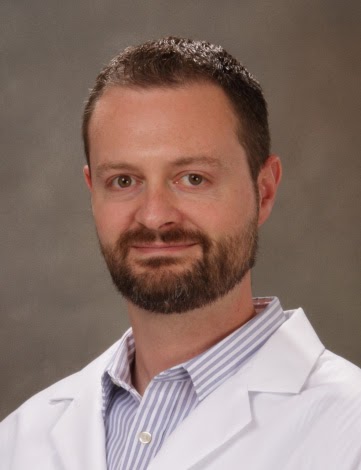
James Costello PhD
(he/him/his)
Associate Professor
Pharmacology Program Director
Completed Upstander/Bystander Training, Completed Mentor Training Course
Within the broad scope of systems biology, my lab focuses on 3 research areas: 1) Network inference for identifying drug targets, 2) Predicting drug sensitivity from -omics datasets, and 3) Modeling temporal effects of drug combinations.
Email:[email protected]
Phone:3037248619

Fabrice Dabertrand PhD
Associate Professor
Completed Upstander/Bystander Training; Completed Implicit Bias Training; Completed Mentor Training Course
The control of cerebral blood flow by ion channels and calcium signaling in the pericytes, endothelial cells, and smooth muscle cells that constitute the parenchymal microcirculation, and use this information to combat brain diseases with a vascular component.
Email:[email protected]
Phone:3037243792
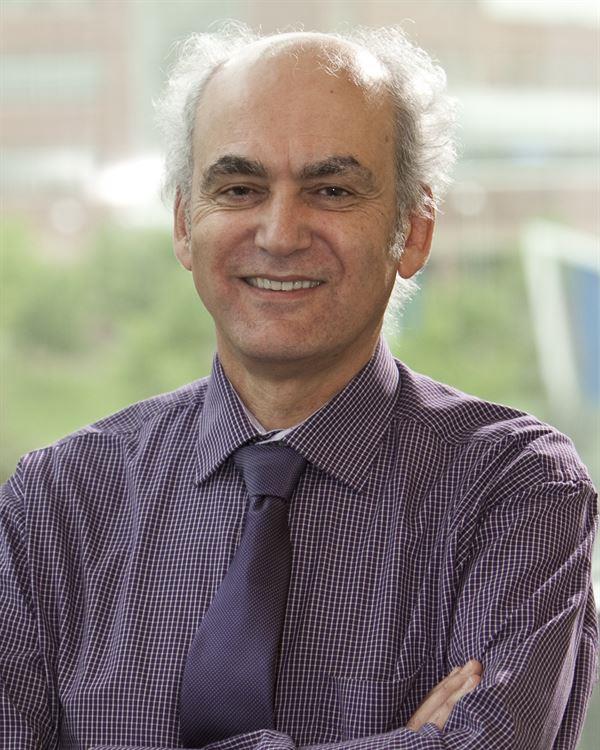
Charles Edelstein MD, PhD
Professor
Caspases and apoptosis in Polycystic kidney Disease (PKD).
Email:[email protected]
Phone:3037244810

Patricia Ernst PhD
(she/her/hers)
Professor
Completed Mentor Training Course; Completed Upstander/Bystander Training
Our group focuses on epigenetic mechanisms regulating normal hematopoiesis and leukemia focusing on MLL-family histone methyltransferases.
Email:[email protected]
Phone:3037248804
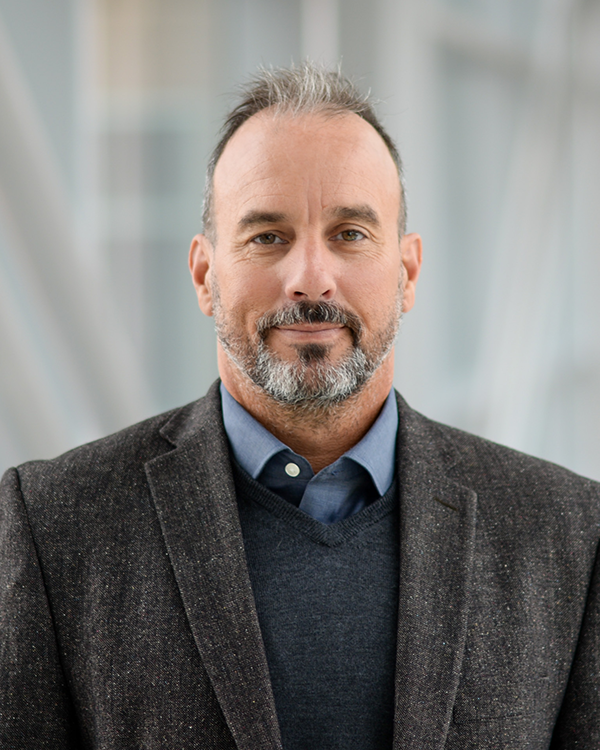
Joaquin Espinosa PhD
Professor
Our main research goal is to understand how gene networks control cell behavior in homeostasis and human disease. Our two main focus areas are cancer biology and Down syndrome.
Email:[email protected]
Phone:3037247389

Christopher Ford PhD
Professor
Completed Upstander/Bystander Training; Completed Mentor Training Course
Our lab examines how neuromodulators are encoded in the mesolimbic and nigrostriatal systems and how circuit dysfunctions in these areas contribute to neurological and psychiatric disorders.
Email:[email protected]
Phone:3037243463

Heide Ford PhD
(she/her)
Professor
Completed Mentor Training Course, Completed Upstander/Bystander Training
Our laboratory focuses on a specific family of homeoproteins, the Six family, and their transcriptional cofactors, Eya and Dach. The Six1 homeobox gene is overexpressed in 50% of primary breast cancers and 90% of metastatic lesions, and its overexpression.
Email:[email protected]
Phone:3037243509
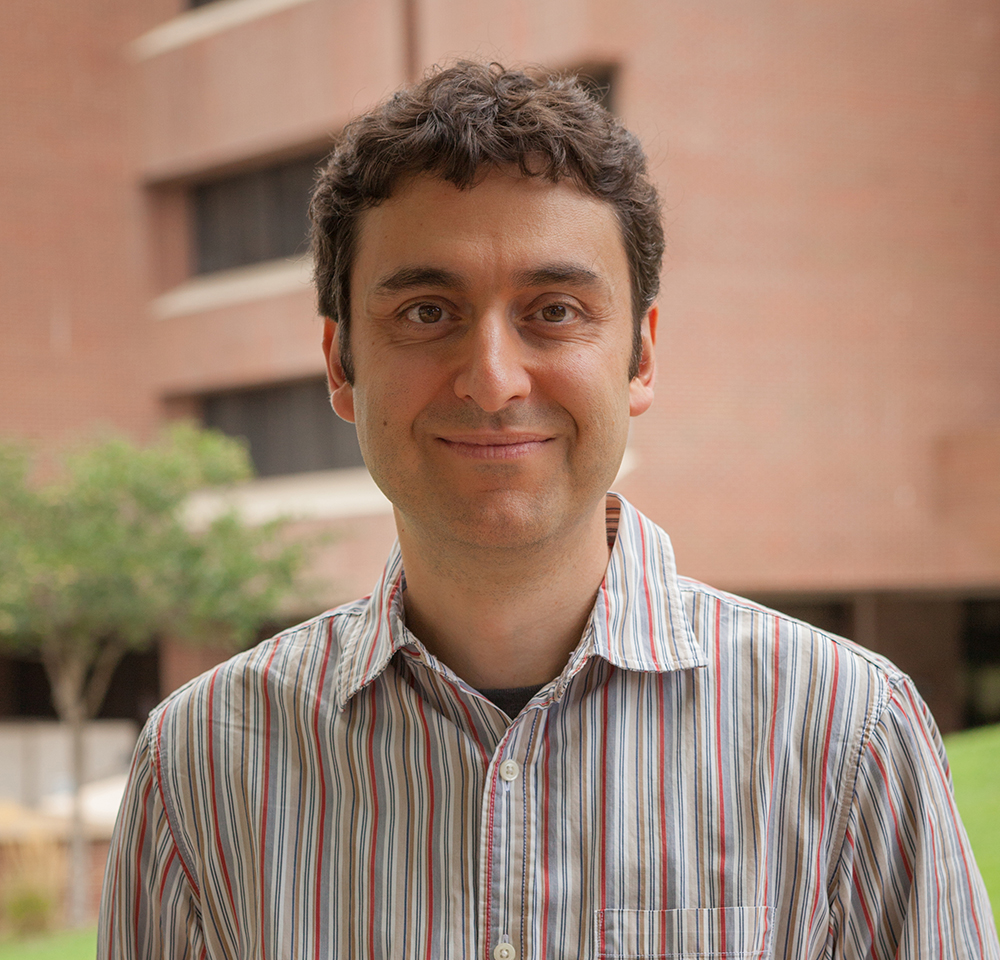
Jordan Jacobelli PhD
(He/Him/His)
Associate Professor
Completed Upstander/Bystander Training; Completed Implicit Bias Training; Completed Mentor Training Course
Research in the Jacobelli lab focuses on determining how actin network remodeling regulates lymphocyte migration, activation, and effector functions in response to chemotactic, adhesive, and antigenic stimuli. We focus on how cytoskeletal effector molecules, such as Ena/Vasp and Formin proteins, generate the mechanical forces and shape changes required for lymphocyte migration and cell-cell interactions during homeostasis and disease. An additional focus of Dr. Jacobelli’s research program is to identify novel therapeutically relevant targets to treat diseases in which leukocyte migration and trafficking play a critical role, such as autoimmunity and cancer. Our goals are to develop approaches to inhibit self-reactive lymphocyte infiltration into autoimmune disease sites or to enhance lymphocyte migration and efficacy against tumors. To address these questions the Jacobelli lab uses a combination of in vitro reductionist approaches, including high-resolution spatio-temporal imaging of molecular dynamics, and cutting-edge in vivo 2-photon microscopy to characterize immune cell behavior within physiological environments.
Email:[email protected]
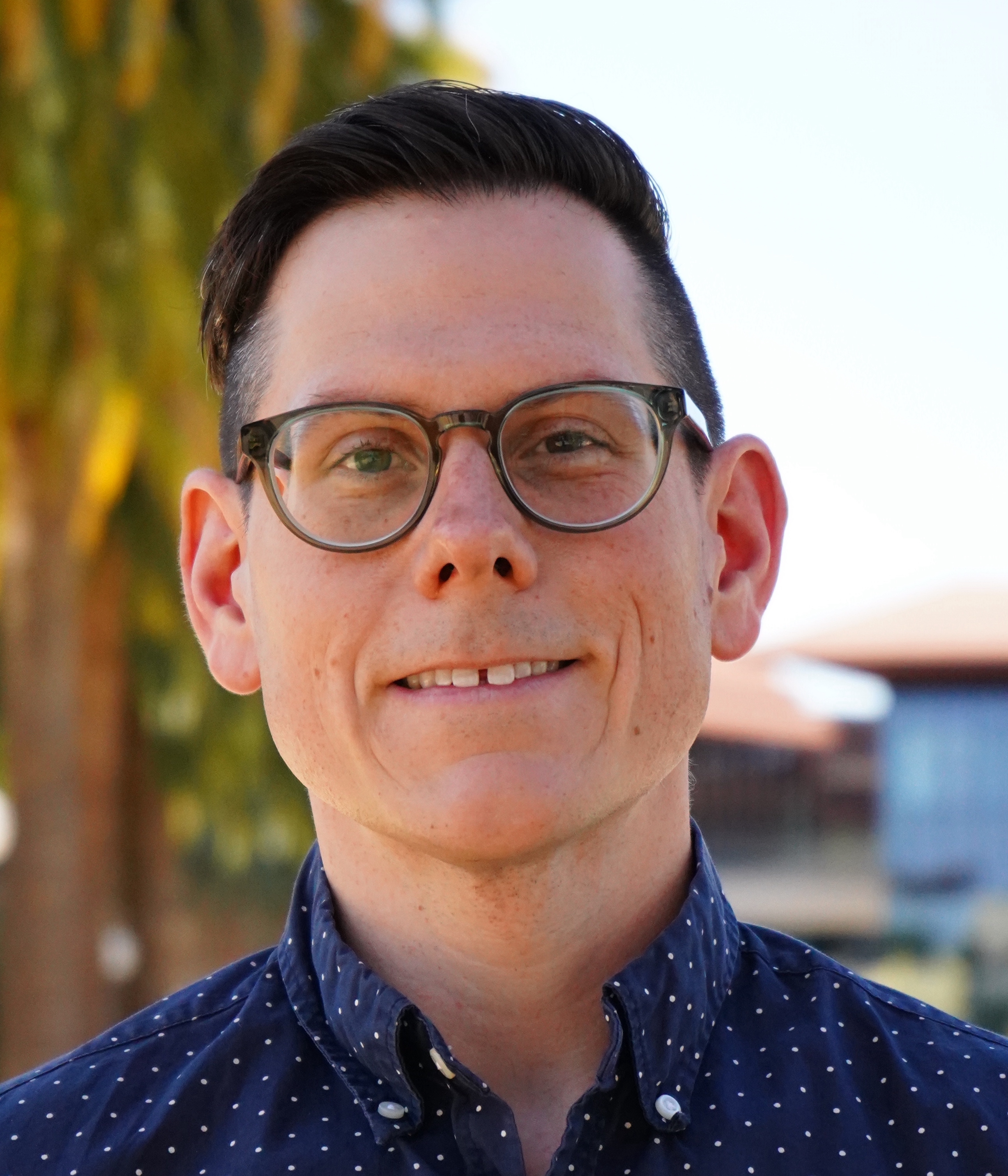
John Janetzko PhD
(he/him)
Assistant Professor
Completed Mentor Training Course, Completed Upstander/Bystander Training
We study the molecular mechanisms that underpin G protein-coupled receptor (GPCR) signaling in health and disease. Using chemical and structural/biophysical approaches, including single-molecule fluorescence, mass spectrometry and cryo-electron microscopy, we aim to understanding signal transduction at the molecular level. Our work aims to connect fundamental questions in signal transduction with novel approaches to target aberrant GPCR signaling in disease.
Email:[email protected]

Matthew Kennedy PhD
Professor
Completed Mentor Training Course; Completed Implicit Bias Training
We study how synapses in the central nervous system are modified by experience, with the ultimate goal of understanding how these mechanisms contribute to normal cognitive function and how they break down in various brain diseases and disorders.
Email:[email protected]

Tim Lahm MD
Professor
Dr. Lahm is a physician scientist in the Division of Pulmonary, Critical Care and Sleep Medicine with a focus on the study of sexual dimorphisms in lung vascular remodeling and right ventricular (RV) adaptation in pulmonary hypertension (PH).
Email:[email protected]

Timothy McKinsey PhD
Professor
Epigenetic regulation of heart failure; signaling and transcriptional mechanisms of muscle disease.
Email:[email protected]
Phone:3037245476
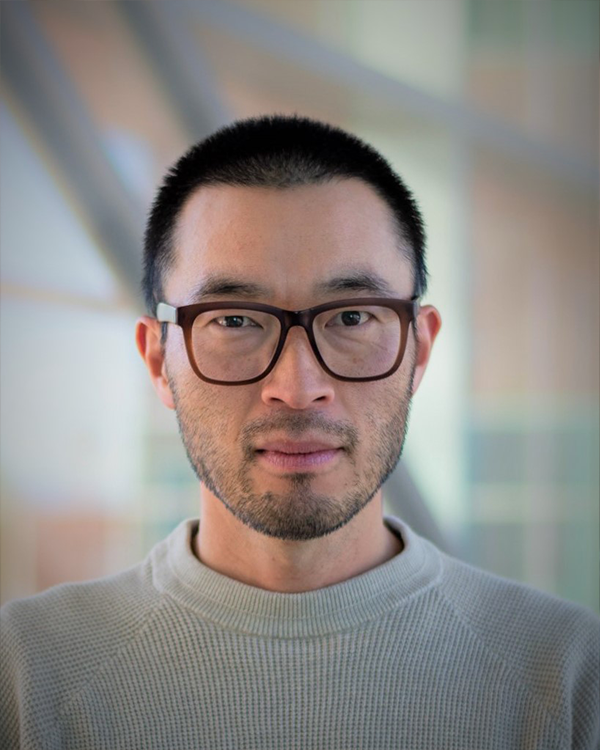
Won Chan Oh PhD
Assistant Professor
Completed Upstander/Bystander Training
We use advanced optical imaging techniques to examine the spatiotemporal mechanisms that govern activity-dependent excitatory and inhibitory synaptic and circuit plasticity in the developing cortex.
Email:[email protected]

Michael Oliphant PhD
Assistant Professor
The Oliphant Lab investigates how early genomic alterations and metabolic crosstalk shape breast cancer risk and treatment response. Specifically, we study arm-level copy number changes in normal mammary cells and how that may foreshadow cancer development and how amino acid transporters rewire metabolism to drive resistance in ER-positive disease. Using single-cell genomics, PDX-derived organoids, and focused drug screens, we aim to block cancer initiation and restore treatment sensitivity.
Email:[email protected]

Catherine Proenza PhD
Professor
One major focus of the lab is to understand the molecular basis for pacemaker activity within individual sinoatrial node myocytes (SAMs). To this end, we use patch clamp electrophysiology to record spontaneous action potentials and membrane currents from isolated SAMs from mice. We also use advanced patch clamp techniques like AP clamp and dynamic clamp to isolate and manipulate individual currents in SAMs.
Email:[email protected]
Phone:3037242522
CANCER BIOLOGY
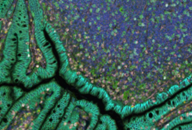 Our faculty are developing a detailed understanding of the underlying
molecular mechanisms that drive cancer cell behavior and then applying this
understanding to develop better, more tailored treatments for cancer. Faculty
are also members of the University of Colorado Cancer Center to translate
findings into the clinic. Specific areas of cancer biology research include: cancer drug resistance, metastasis, and tumor cell growth and death. We leverage cutting-edge technologies, in single cell multi-omic approaches, multispectral imaging, cell biology, structural biology, biochemistry, genetics, and systems biology.
Our faculty are developing a detailed understanding of the underlying
molecular mechanisms that drive cancer cell behavior and then applying this
understanding to develop better, more tailored treatments for cancer. Faculty
are also members of the University of Colorado Cancer Center to translate
findings into the clinic. Specific areas of cancer biology research include: cancer drug resistance, metastasis, and tumor cell growth and death. We leverage cutting-edge technologies, in single cell multi-omic approaches, multispectral imaging, cell biology, structural biology, biochemistry, genetics, and systems biology.

Benjamin Bitler PhD
Associate Professor
Completed Mentor Training Course; Completed Upstander/Bystander Training
Dr. Bitler is committed to the fight against cancer through his work to elucidate the impact of cancer-related signaling and epigenetic regulation.
Email:[email protected]
Phone:3037240574

Joshua Black PhD
Assistant Professor
Completed Mentor Training Course; Completed Upstander/Bystander Training
My lab studies how cells use epigenetics to control gene amplifications. We have identified epigenetic pathways that cells use to create transient increases in gene copy number. These copy number changes play roles in tumor development, progression and drug resistance. By understanding the fundamental mechanisms that govern copy number control we hope to allow better cancer therapies.
Email:[email protected]
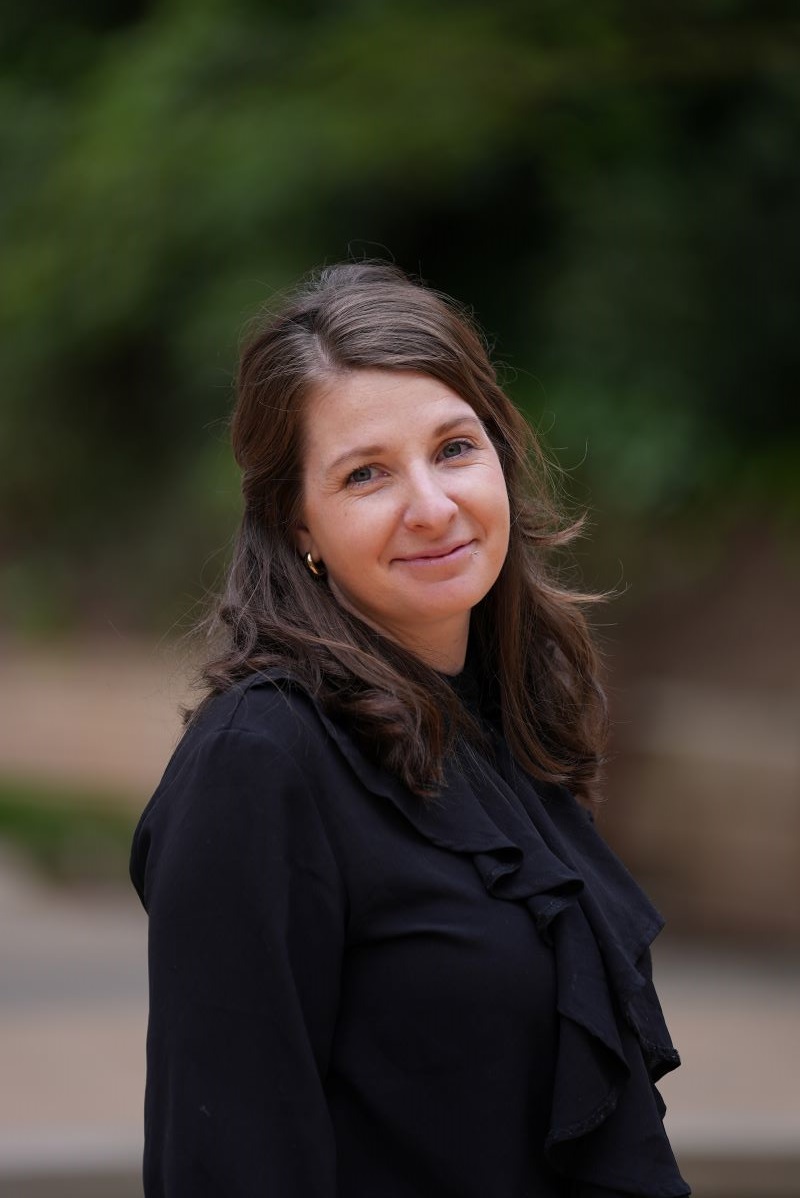
Gina Bouchard PhD
(She/her)
Assistant Professor
The Bouchard lab investigates metabolic reprogramming within the irradiated tumor microenvironment through a spatial biology approach. We utilize a variety of models including 3D patient-derived assembloids and tissues to investigate cellular rearrangements following treatment with the primary goal of uncovering spatial features linked to metabolic resistance, ultimately aiming to enhance the effectiveness of radiotherapy in cancer patients.
Email:[email protected]
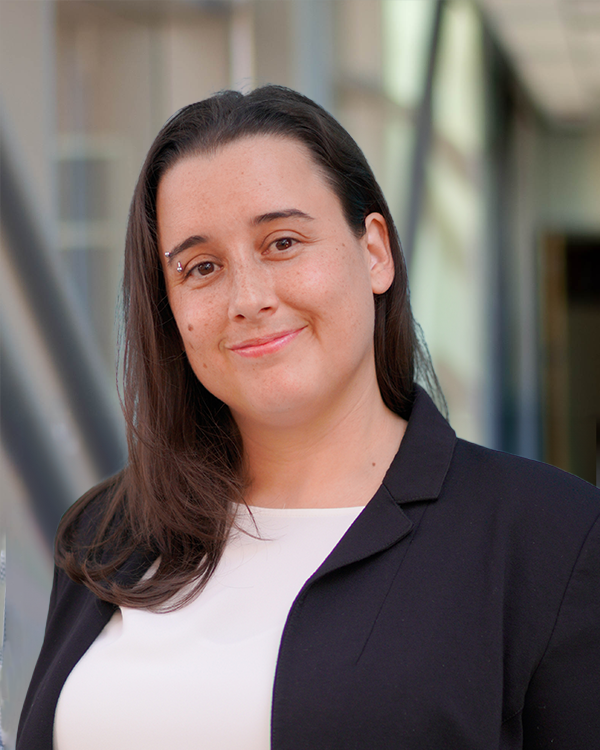
Alessandra Brambati PhD
Assistant Professor
Completed Mentor Training Course
We study the molecular mechanisms that regulate DNA repair and genome instability, focusing on non-canonical DNA double-strand break repair pathways. Our research explores how disruptions in these critical processes contribute to disease development and drive evolutionary change.
Email:[email protected]

M. Cecilia Caino PhD
(she/her/hers)
Assistant Professor
Facilitated and Completed Mentor Training Course; Completed Upstander/Bystander Training, Completed Equity Certificate,
Our group aims to understand how mitochondria reprogramming in tumors impact cellular behaviors that drive progressive and lethal cancer. We use a broad repertoire of biochemistry, cell biology, live cell imaging and animal models to study the impact of mitochondria shape, number and subcellular distribution in metastatic dissemination.
Email:[email protected]

James Costello PhD
(he/him/his)
Associate Professor
Pharmacology Program Director
Completed Upstander/Bystander Training, Completed Mentor Training Course
Within the broad scope of systems biology, my lab focuses on 3 research areas: 1) Network inference for identifying drug targets, 2) Predicting drug sensitivity from -omics datasets, and 3) Modeling temporal effects of drug combinations.
Email:[email protected]
Phone:3037248619
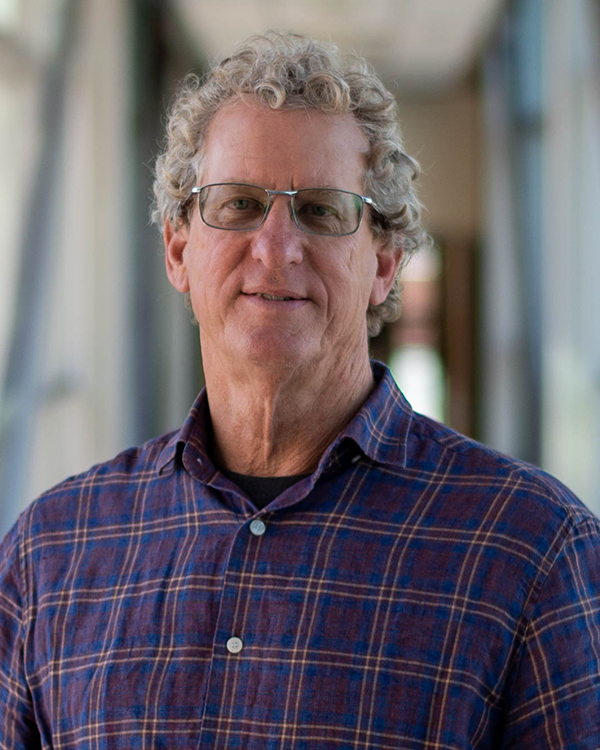
Scott Cramer PhD
Professor
Prostate Cancer Tumor Suppressors, Stem Cells, Tumor Initiating cells, Signal Transduction, Receptor Signaling.
Email:[email protected]
Phone:3037246276

Patricia Ernst PhD
(she/her/hers)
Professor
Completed Mentor Training Course; Completed Upstander/Bystander Training
Our group focuses on epigenetic mechanisms regulating normal hematopoiesis and leukemia focusing on MLL-family histone methyltransferases.
Email:[email protected]
Phone:3037248804

Joaquin Espinosa PhD
Professor
Our main research goal is to understand how gene networks control cell behavior in homeostasis and human disease. Our two main focus areas are cancer biology and Down syndrome.
Email:[email protected]
Phone:3037247389
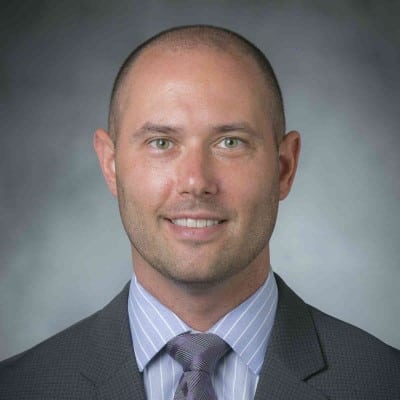
Peter Fecci MD/PhD
Professor
Chair, Neurosurgery
As an investigator long-interested in brain tumor immunology and immunotherapy, and as Chair of the Department of Neurosurgery at the University of Colorado, I focus our brain tumor programmatic interests on the design, optimization, and monitoring of immune-based treatment platforms for patients with intracranial tumors, whether primary or metastatic. Within this broader scope, however, my research group looks more specifically at limitations to immunotherapeutic success, with a particular focus on understanding and reversing T cell dysfunction in patients. We employ a systematic approach to categorizing T cell dysfunction, and while we have previously highlighted regulatory T cell-induced tolerance, we now heavily study T cell ignorance and exhaustion, as well (Chongsathidkiet et al, Nat Medicine 2018; Waibl Polania et al, Immunity 2025). We have highlighted the role of T cell dysfunction in curbing the success of various immunotherapeutic strategies (i.e. immune checkpoint blockade and chimeric antigen receptor (CAR) T cells) (Woroniecka et al, Clin Cancer Res 2020) while also uncovering novel T cell killing mechanisms that might instead be exploited (Lerner et al, Nat Cancer 2023).
Email:[email protected]

Heide Ford PhD
(she/her)
Professor
Completed Mentor Training Course, Completed Upstander/Bystander Training
Our laboratory focuses on a specific family of homeoproteins, the Six family, and their transcriptional cofactors, Eya and Dach. The Six1 homeobox gene is overexpressed in 50% of primary breast cancers and 90% of metastatic lesions, and its overexpression.
Email:[email protected]
Phone:3037243509

Blake Hill
Professor
Chair of Pharmaceutical Sciences
We investigate how mitochondrial quality control works at the molecular level and how its failure drives lethal encephalopathies and contributes to neurodegenerative, cancer, cardiac, and other diseases. Our lab integrates multi-scale approaches—from purified molecules to whole organisms—anchored in structural biology and biophysical principles to reveal how biomolecular interactions govern mitochondrial and human health.
Email:[email protected]

Jordan Jacobelli PhD
(He/Him/His)
Associate Professor
Completed Upstander/Bystander Training; Completed Implicit Bias Training; Completed Mentor Training Course
Research in the Jacobelli lab focuses on determining how actin network remodeling regulates lymphocyte migration, activation, and effector functions in response to chemotactic, adhesive, and antigenic stimuli. We focus on how cytoskeletal effector molecules, such as Ena/Vasp and Formin proteins, generate the mechanical forces and shape changes required for lymphocyte migration and cell-cell interactions during homeostasis and disease. An additional focus of Dr. Jacobelli’s research program is to identify novel therapeutically relevant targets to treat diseases in which leukocyte migration and trafficking play a critical role, such as autoimmunity and cancer. Our goals are to develop approaches to inhibit self-reactive lymphocyte infiltration into autoimmune disease sites or to enhance lymphocyte migration and efficacy against tumors. To address these questions the Jacobelli lab uses a combination of in vitro reductionist approaches, including high-resolution spatio-temporal imaging of molecular dynamics, and cutting-edge in vivo 2-photon microscopy to characterize immune cell behavior within physiological environments.
Email:[email protected]
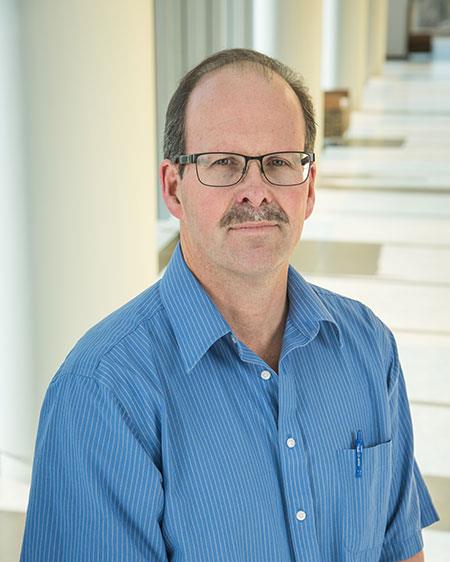
Craig Jordan PhD
(he/him/his)
Professor
Completed Mentor Training Course
Dr. Jordan serves as the Chief of the Hematology Division and directs a research program focused on the development of novel therapies for the treatment of leukemia.
Email:[email protected]
Phone:3037248165

Tatiana Kutateladze PhD
Professor
My laboratory investigates molecular mechanisms of epigenetic regulation and the role of chromatin modifications in human diseases. We use high field NMR spectroscopy and X-ray crystallography to obtain atomic-resolution structures of chromatin-binding proteins and complexes involved in transcription and DNA damage repair.
Email:[email protected]
Phone:3037243593

Siddhartha Mitra PhD
Assistant Professor
The Mitra Lab is dedicated to unraveling the complex interplay between myeloid cells and brain tumors, with a focus on understanding how these immune cells contribute to tumor growth and therapeutic resistance in both adult and pediatric cancers. By dissecting the molecular and cellular mechanisms that drive myeloid cell involvement in the tumor microenvironment, we aim to uncover new therapeutic targets for macrophage-based immunotherapies. Our lab leverages cutting-edge techniques, including high-throughput spatial proteomics, bioinformatics, and CRISPR-based genome editing, to develop and test innovative myeloid-directed interventions. The Mitra Lab frequently partners with specialists in neurosurgery, immunology, and pediatric oncology to accelerate the development of effective treatments, such as myeloid checkpoint inhibitors, virus-based targeting therapies and next generation cell-therapies using CAR-engineered macrophages against aggressive brain tumors. Our ultimate goal is to translate our findings into clinical applications, providing new hope for patients with challenging malignancies.
Email:[email protected]
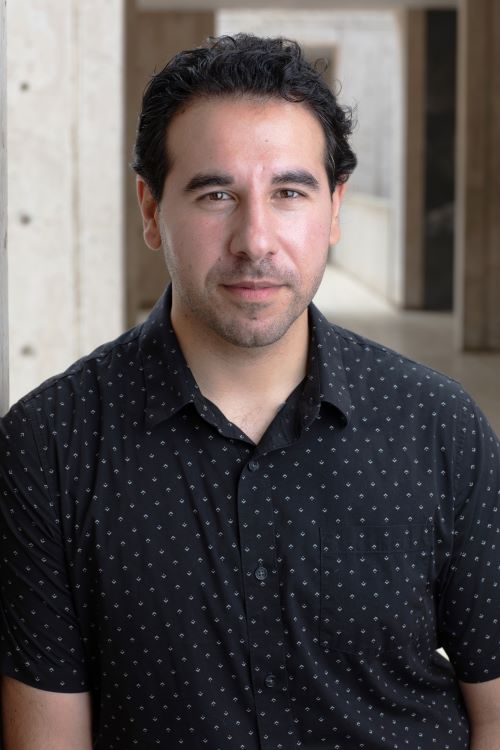
Joe Nassour PhD
Assistant Professor
My lab is interested in studying the molecular connections between aging and cancer. The focus is on understanding how the shortening of telomeres during cellular aging triggers autophagy and innate immune signaling pathways to suppress the early stages of tumor development. Our overarching goal is to deepen our understanding of cancer biology and develop innovative strategies to combat this disease.
Email:[email protected]

Michael Oliphant PhD
Assistant Professor
The Oliphant Lab investigates how early genomic alterations and metabolic crosstalk shape breast cancer risk and treatment response. Specifically, we study arm-level copy number changes in normal mammary cells and how that may foreshadow cancer development and how amino acid transporters rewire metabolism to drive resistance in ER-positive disease. Using single-cell genomics, PDX-derived organoids, and focused drug screens, we aim to block cancer initiation and restore treatment sensitivity.
Email:[email protected]
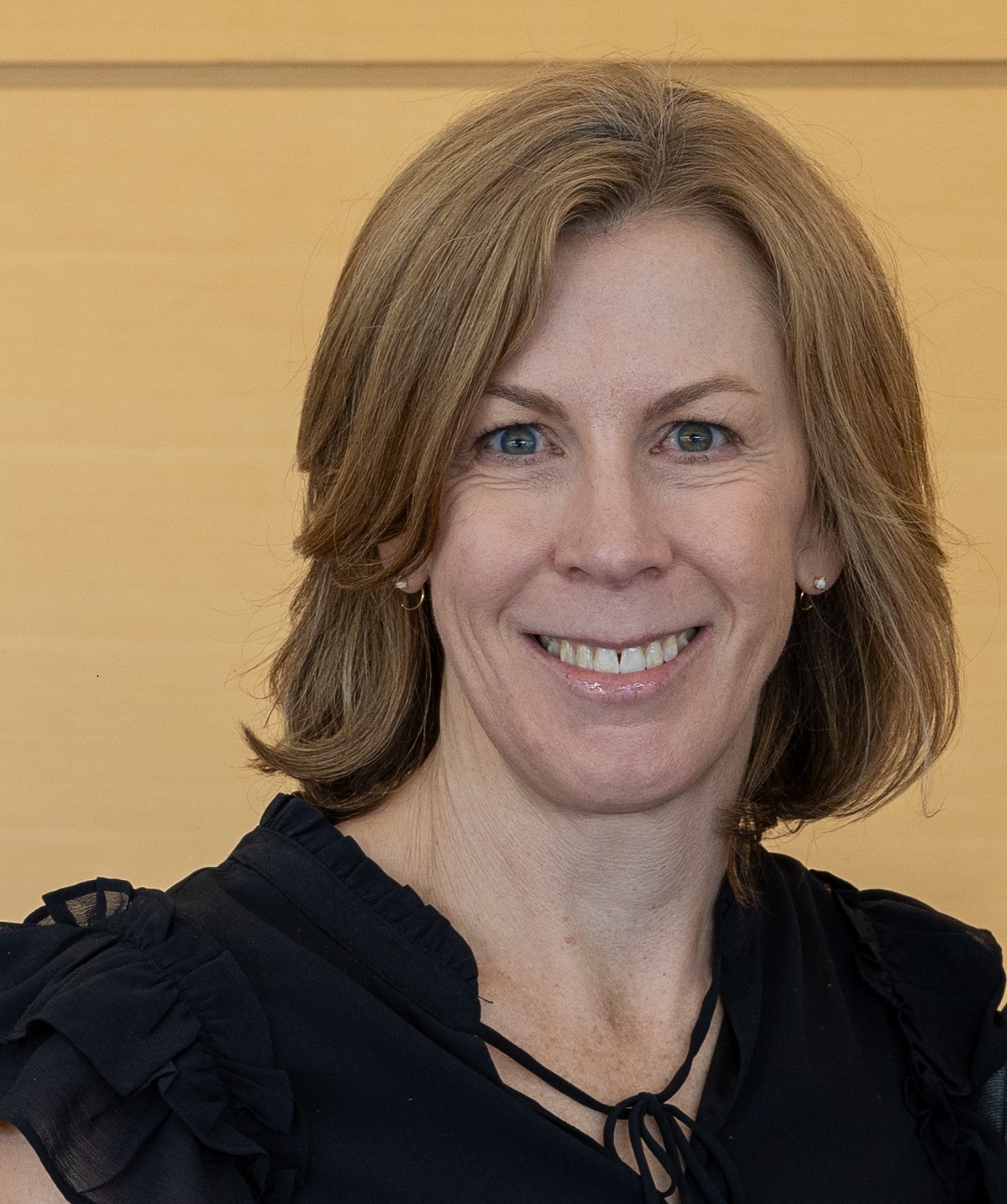
Rebecca Schweppe PhD
(she/her/hers)
Professor and Director, Cancer Biology Program
Completed Mentor Training Course
The focus of my lab is to identify novel molecular targets relevant to papillary and anaplastic thyroid cancer (PTC and ATC) with the ultimate goal of advancing these studies to clinical trials for thyroid cancer patients who do not respond to standard treatment. Trainings Completed: Certificate in Multicultural Mentoring, Implicit Bias Training, Bystander/Upstander Training, Active Listening Training to Support Student Mental Health
Email:[email protected]
Phone:3037243179

Matthew Sikora PhD
(he/him)
Associate Professor
Completed Mentor Training Course
The overall goal of the Sikora Laboratory is to understand mechanisms of response and resistance to steroid hormones and anti-estrogen therapies in breast cancer, with a special emphasis on invasive lobular carcinoma of the breast.
Email:[email protected]
Phone:3037244301
COMPUTATIONAL BIOLOGY & PERSONALIZED MEDICINE
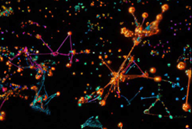
Faculty utilize the human genome, transcriptome, proteome, metabolome, and molecular structure to define how and where pharmacological processes occur. Studying biological systems is complex and drawing statistical inferences from large compendium data of genetic factors requires novel computational methodology and compute infrastructure. Faculty are designing the methods to translate these large datasets into knowledge.
Specific areas of computational biology and personalized medicine include systems pharmacology, development of network inference methods, prediction of novel gene function, genome and transcriptome-wide association studies, machine learning and artificial intelligence, and structure modeling. Faculty also have a strong interest in the ethical concerns raised with applying artificial intelligence models and the collection of large training and testing datasets.

Katrina Claw PhD
Assistant Professor
My research focuses broadly on personalizing medicine, using genetic information and biomarkers for tailored treatment, in relation to pharmacogenomics as well as understanding the ethical, cultural, and social implications of genomic research with populations historically underrepresented in health research. My current research includes studying cytochrome P450 genetic variation in Indigenous communities (e.g., American Indian and Alaska Native peoples), with a focus on CYP2A6 variation in relation to nicotine metabolism and smoking cessation, as well as understanding the ways in which adaptations to diverse local environments may have impacted modern pharmacogenomic variation and evolutionary medicine. My other projects include exploring the perspectives of tribal members on genetic research with tribes and developing guidelines and policies in partnership with tribes. All of my projects strive to use community based participatory research approach and include cultural and Indigenous knowledge.
Email:[email protected]

James Costello PhD
(he/him/his)
Associate Professor
Pharmacology Program Director
Completed Upstander/Bystander Training, Completed Mentor Training Course
Within the broad scope of systems biology, my lab focuses on 3 research areas: 1) Network inference for identifying drug targets, 2) Predicting drug sensitivity from -omics datasets, and 3) Modeling temporal effects of drug combinations.
Email:[email protected]
Phone:3037248619
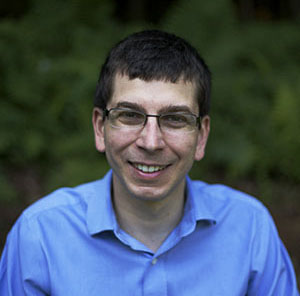
Casey Greene PhD
Professor
Completed Upstander/Bystander Training, Completed Mentor Training Course
The Greene lab focuses on performing open, reproducible, and inclusive research on topics at the intersection of machine learning, public data, and the transcriptome.
Email:[email protected]
Phone:3037240318

Arjun Krishnan PhD
Associate Professor
Completed Mentor Training Course; Completed Upstander/Bystander Training
Our group develops machine learning (ML)- and AI-based methods and tools that take advantage of diverse and massive public data collections to gain nuanced insights into the genetic, molecular, and cellular basis of complex diseases. The data collections we work with include genotype-phenotype associations, bulk and single-cell omics profiles, genome-scale molecular networks, unstructured text corpora, and ontologies/knowledgebases. Our methods and tools enable biomedical researchers to reuse these public data effectively, seamlessly, and at scale to generate novel data-driven hypotheses about a variety of biomedical contexts. We are also passionate about rapid and open science, well-rounded professional training, and creating diverse and inclusive learning environments.
Email:[email protected]

Edward Lau PhD
Assistant Professor
Completed Mentor Training Course; Completed Upstander/Bystander Training
Our lab has a broad range of research interests, encompassing several areas of biochemistry and cell biology:
(1) Protein turnover: development and application of stable isotope labeling mass spectrometry methods to measure protein half-life.
(2) Spatial proteomics: subcellular distributions of proteins, interaction between spatial and temporal protein dynamics.
(3) Cellular physiology: cellular crosstalk by secretome proteins, signatures of cellular senescence, cardiotoxicity and proteostatic disruptions in induced pluripotent stem cell models.
(4) Bioinformatics: correlation and discrepancies of transcript and protein levels, protein prediction with machine learning.
Email:[email protected]

Laura Saba PhD
Associate Professor
Completed Mentor Training Course; Completed Upstander/Bystander Training
We utilize and develop systems genetics tools to explore biological mechanisms responsible for disease.
Email:[email protected]
Phone:3037249697
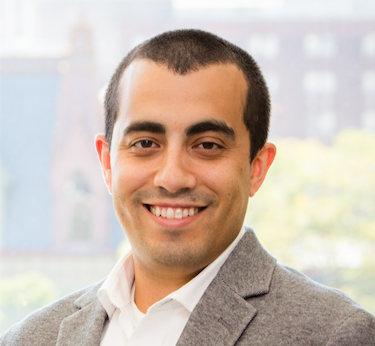
Gregory Way PhD
Assistant Professor
Completed Upstander/Bystander Training; Completed Mentor Training Course
The mission of our lab is to reduce human suffering by integrating biomedical data science and software engineering into drug discovery by developing new computational methods, innovative approaches, assays, and software for analyzing high-dimensional genomic, molecular, and microscopy data with a focus on pediatric diseases, including pediatric cancer and Neurofibromatosis Type 1 (NF1).
Email:[email protected]

Fan Zhang PhD
Assistant Professor
IMMU Special Graduate Faculty Appointment
Completed Mentor Training Course; Completed Upstander/Bystander Training
The Zhang lab develops advanced statistical machine learning methods and systems immunology approaches for translational medicine. Specifically, we focus on 1) novel computational method development, 2) large single-cell multi-modal sequencing data integration, 3) cutting-edge systems immunology approaches, and 4) disease association modeling for translational medicine.
Email:[email protected]
NEUROPHARMACOLOGY
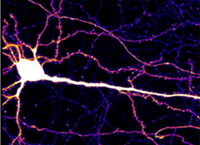
Faculty working in the area of neuroscience and neuropharmacology focus their research on characterizing the cellular and molecular mechanisms that underlie neuronal function and behavior. Because neuroscience/neuropharmacology is an increasingly integrative discipline, we incorporate cutting-edge multidisciplinary approaches including animal behavior, advanced microscopy, in vivo measurements of neural activity, electrophysiology, optogenetics and molecular and cell biology. One of the strengths of our faculty lies in the fact that they have experience in a number of different scientific disciplines.
Specific areas of neuropharmacology research at CU Anschutz include the study of molecular memory and synaptic plasticity, neurodegenerative diseases and molecular mechanisms that control synaptic transmission and neuromodulation. In addition, the pharmacology faculty has a particularly strong interest in the neuropharmacology of psychedelics and drugs of abuse.

Jason Aoto PhD
Associate Professor;
Director, Pharmacology Program
Completed Mentor Training Course; Completed Upstander/Bystander Training
We employ cutting-edge approaches including mouse genetics, optogenetics, viral circuit tracing, ex vivo slice electrophysiology, CRISPR/cas9 genome editing, single-cell RNA-sequencing and super-resolution microscopy to investigate how disease-relevant synaptic molecules are utilized in a cell-type- and synapse-specific manner in neural circuits implicated in neuropsychiatric disorders and addiction.
Email:[email protected]

John Bankston PhD
(He/Him/His)
Associate Professor
Completed Mentor Training Course; Completed Implicit Bias Training
We are interested in the molecular mechanisms of cellular excitability in the heart and brain. Our focus is on two different families of ion channels, the acid-sensing ion channels (ASICs) and hyperpolarization-activated cyclic nucleotide-modulated (HCN) channels. We study the structural and physiological mechanisms of channel function for each class of channel including how these channels are regulated by other proteins as well as the lipid membrane. To do this we use a combination of patch clamp, FRET, single-molecule fluorescence, and biochemistry.
Email:[email protected]

Emily Bates PhD
(She/Her/Hers)
Associate Professor
Completed Mentor Training Course
We study how ion channel activity (bioelectricity) contributes to morphological development in multiple tissues (craniofacial structures, fly wings, brain, pancreas, and bone).
Email:[email protected]
Phone:3037248303

Ulli Bayer PhD
Professor
Completed Mentor Training Course
Our field is molecular and cellular neuroscience. Specifically, we are interested in the molecular and cellular mechanisms underlying learning, memory and cognition. We also want to know how these mechanisms go wrong in disease, and how this could be repaired by new therapeutic strategies.
Email:[email protected]
Phone:3037243610

Timothy Benke MD, PhD
Professor
My laboratory studies the function of synapses, the primary means of communication between neurons in the brain. Discoveries include mechanisms for synaptic changes that are likely associated with learning and memory. Research is directed at discovering how synapses change with development and following seizures. Our results are specifically directed to help prevent and treat the effects of early-life seizures (ELS), which can include autism, learning impairment and epilepsy.
Email:[email protected]

Kimberley Bruce PhD
Associate Professor
Completed Upstander/Bystander Training
Many neurodegenerative diseases such as multiple sclerosis and Alzheimer's disease (AD) are more prevalent in women and have a marked impact on physical and mental health. Female sex is a major risk factor for late-onset AD, and females carrying the APOE4 gene are more likely to develop severe AD. Despite these well-known associations, the reason for this increased risk is unclear. Recent work from Dr. Bruce's laboratory has shown that females have enhanced fat and cholesterol metabolism in specialized brain cells, which may be detrimental in the presence of AD risk factors such as APOE4.
Email:[email protected]
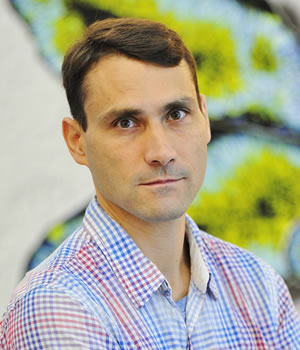
Jason Christie PhD
Professor
The Christie Lab endeavors to understand the neural-circuit-mechanisms that underlie the learning-dependent optimization of behavior. The lab’s approach mainly focuses on the cerebellum, a brain region that guides adaptive updating of simple reflexive movements as well as experience-driven refinement of high-order brain function (e.g., thinking, planning, and decision making).
Email:[email protected]

Fabrice Dabertrand PhD
Associate Professor
Completed Upstander/Bystander Training; Completed Implicit Bias Training; Completed Mentor Training Course
The control of cerebral blood flow by ion channels and calcium signaling in the pericytes, endothelial cells, and smooth muscle cells that constitute the parenchymal microcirculation, and use this information to combat brain diseases with a vascular component.
Email:[email protected]
Phone:3037243792

Robert Dietz MD, PhD
Assistant Professor
Completed Upstander/Bystander Training, Completed Mentor Training Course
Strategies for restoration of synaptic plasticity following cerebral ischemia.
Email:[email protected]

Ana I. Fernandez-Marino MSc, PhD
Assistant Professor
Every second, our body hums with electricity—not just from your heartbeats or brainwaves, but from a vast internal network of charged particles flowing across cell membranes. This silent symphony is orchestrated by ion channels—protein gates that control the movement of ions like sodium, potassium, and calcium across the cell membrane. They’re fundamental to how our brain thinks, our heart beats, and even how we feel pain or move our muscles. But when these channels malfunction—due to genetic mutations or environmental factors—it can lead to serious diseases, from epilepsy and cardiac arrhythmias to chronic pain syndromes and muscle disorders. My lab uses electrophysiological techniques to measure the voltage-gated ion channel function in real time and structural biology to visualize the 3D architecture of these membrane proteins at near-atomic detail. By understanding how these channels gates open, close, and misbehave in disease, we can pinpoint the root causes of these channelopathies and, ultimately, guide the development of targeted therapies like nanobodies that can restore their proper function.
Email:[email protected]

Christopher Ford PhD
Professor
Completed Upstander/Bystander Training; Completed Mentor Training Course
Our lab examines how neuromodulators are encoded in the mesolimbic and nigrostriatal systems and how circuit dysfunctions in these areas contribute to neurological and psychiatric disorders.
Email:[email protected]
Phone:3037243463

John Janetzko PhD
(he/him)
Assistant Professor
Completed Mentor Training Course, Completed Upstander/Bystander Training
We study the molecular mechanisms that underpin G protein-coupled receptor (GPCR) signaling in health and disease. Using chemical and structural/biophysical approaches, including single-molecule fluorescence, mass spectrometry and cryo-electron microscopy, we aim to understanding signal transduction at the molecular level. Our work aims to connect fundamental questions in signal transduction with novel approaches to target aberrant GPCR signaling in disease.
Email:[email protected]

Matthew Kennedy PhD
Professor
Completed Mentor Training Course; Completed Implicit Bias Training
We study how synapses in the central nervous system are modified by experience, with the ultimate goal of understanding how these mechanisms contribute to normal cognitive function and how they break down in various brain diseases and disorders.
Email:[email protected]

Won Chan Oh PhD
Assistant Professor
Completed Upstander/Bystander Training
We use advanced optical imaging techniques to examine the spatiotemporal mechanisms that govern activity-dependent excitatory and inhibitory synaptic and circuit plasticity in the developing cortex.
Email:[email protected]
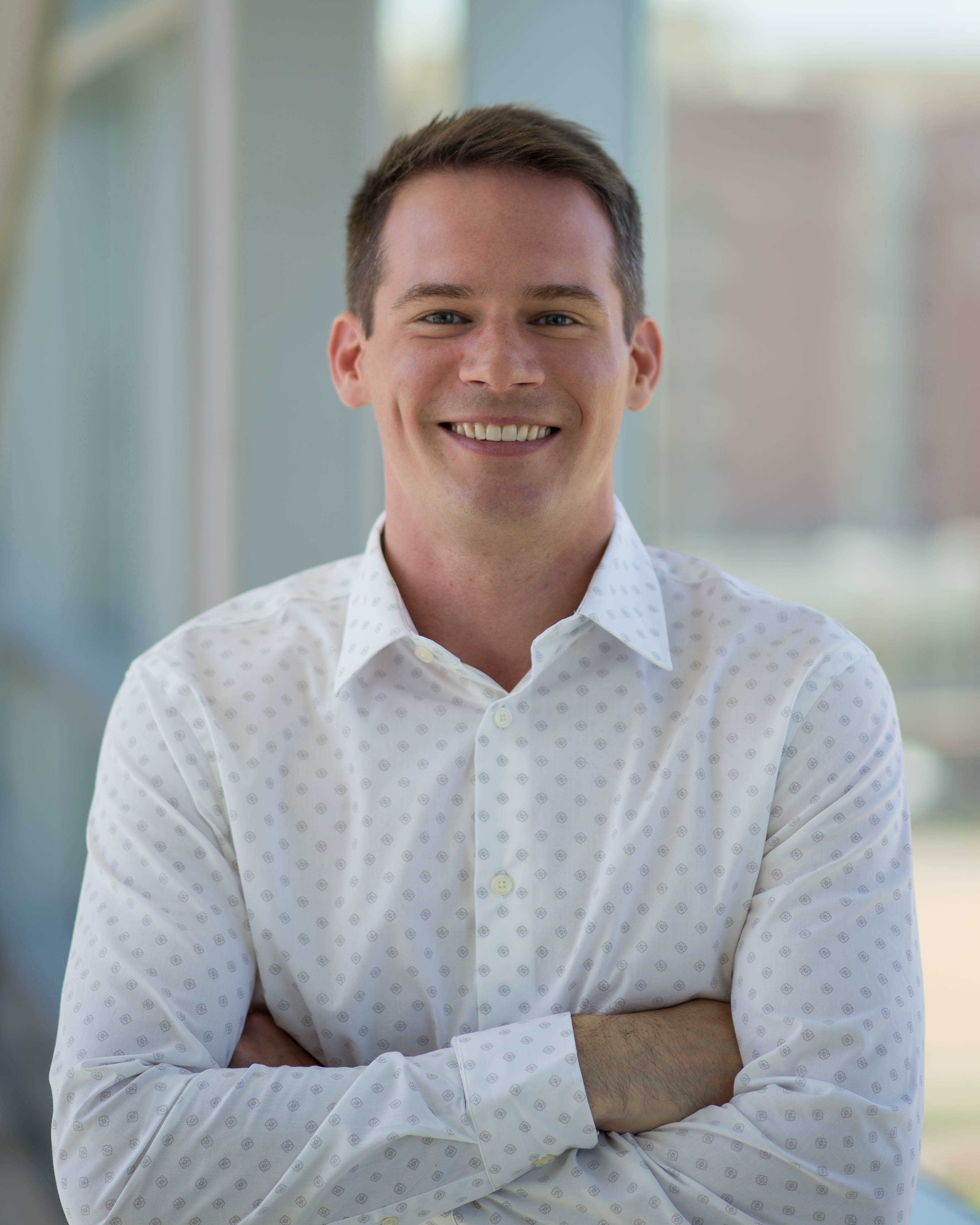
Justin O'Hare PhD
Assistant Professor
Completed Mentor Training Course
We investigate how a neuron’s dendritic arbor supports the formation of new, experience-dependent receptive fields that serve as building blocks for new memories. Using place fields in mouse hippocampal area CA1 as a model system, we combine molecular and systems neuroscience approaches to understand (1) how dendrites integrate multiple, complementary streams of synaptic input from distinct brain circuits to inform somatic action potential firing and (2) how these dendritic integrative rules are updated during place field formation and behaviorally-manifested learning.
Email:[email protected]

Nidia Quillinan PhD
Associate Professor
Completed CAM Facilitator Training
The Quillinan laboratory studies excitability and plasticity changes in the brain following cerebral ischemia. We are particularly interested in cerebellar networks that are affected by stroke and cardiac arrest. We also investigate the role of sex hormones and their receptors in acute neuronal injury and longterm hippocampal function.
Email:[email protected]

Debosmita Sardar PhD
Assistant Professor
At the Glial Epigenetics Lab, we are interested in the big broad question of how we perceive and respond to the world around us through our senses. Towards this, we are specifically interested in the sensory experience of smell. In our lab, we use mouse models to approach the smell system at a cellular scale of studying non-neuronal glial cells, and at a molecular scale of epigenetics. Together, our work will provide insights into how glial cells and epigenetics play together to shape sense of smell.
Email:[email protected]
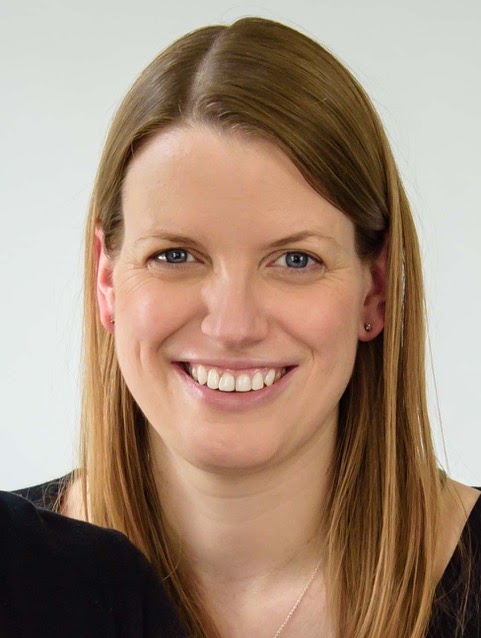
Katharine Smith PhD
Associate Professor
Completed Upstander/Bystander Training
Research in our lab is focused on understanding how the excitability of neurons is regulated by excitatory and inhibitory synaptic plasticity. Many neuropsychiatric diseases and brain pathologies exhibit alterations in neuronal excitability in key brain regions associated with learning and memory. Our goal is to understand the molecular mechanisms of how excitatory and inhibitory synapses function together to maintain appropriate excitability of the neuron, and how this is disrupted in diseases such as autism and schizophrenia. To reach this goal we image both excitatory and inhibitory synapses using cutting-edge microscopy, including super-resolution imaging, supported by electrophysiology and biochemical analysis.
Email:[email protected]

Slobodan Todorovic MD, PhD
Professor
Completed Mentor Training Course
The role of T-type (low-voltage-activated, LVA) calcium channels in the molecular mechanisms of anesthesia and analgesia.
Email:[email protected]
PHARMACOLOGY AFFILIATE FACULTY
PharMM affiliated faculty are not available to serve as primary PhD mentors, but are available to serve on mentoring teams and student committees.

Mair Churchill PhD
Professor
Research Focus:
Chromosome Biology
Gene Regulation
Genomics Bioinformatics
Macromolecular Structure
Microbiology Virology
Structural Biology
My lab is interested in understanding the molecular basis of essential processes that regulate gene expression. We use biophysical, biochemical methods, and structural methods, including X-ray crystallography. Our insights into these fundamental mechanisms will contribute to a better understanding and ability to regulate gene expression processes involved in human diseases and will assist in drug development efforts.
Our studies focus on the following questions: (1) How is chromatin structure modulated for DNA-dependent processes? and (2) How do transcription factors and pioneering factors activate gene expression?
Email:[email protected]

Scott Cramer PhD
Professor
Research Focus:
Cancer Biology
Genomics Bioinformatics
Prostate Cancer Tumor Suppressors, Stem Cells, Tumor Initiating cells, Signal Transduction, Receptor Signaling.
Email:[email protected]

Charles Edelstein MD, PhD
Professor
Research Focus:
Signal Transduction
Caspases and apoptosis in Polycystic kidney Disease (PKD).
Email:[email protected]
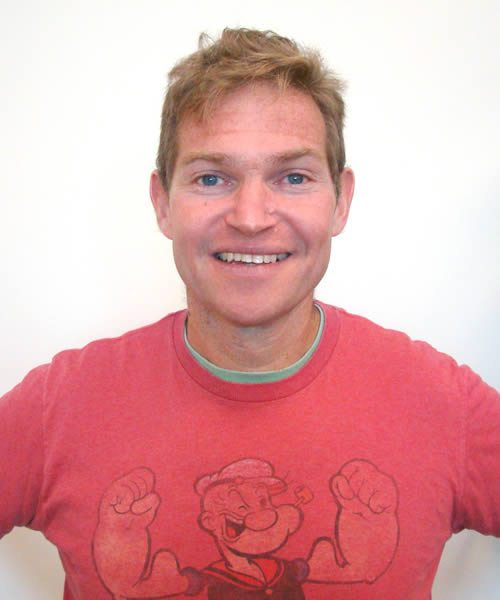
Elan Eisenmesser PhD
Associate Professor
Completed Mentor Training Course
Research Focus:
Accepting Students
Cancer Biology
Signal Transduction
The Eisenmesser lab takes a unique approach to understand protein function, and particularly enzyme function, by utilizing molecular engineering methods to control both structural interactions and the underlying movements that underlie their conformational changes. The ultimate goal of the Eisenmesser lab is to fully characterize molecular interactions at both atomic resolution and biological levels with a particular emphasis on medically relevant systems that may be exploited to either block or promote events underlying disease progression.
Email:[email protected]

David Jones PhD
Associate Professor
Research Focus:
Structural Biology
Research in my lab uses NMR spectroscopy, X-ray crystallography, molecular biology and biophysical approaches to answer the fundamental questions of how mediators of signal transduction interact with proteins of neuronal signaling pathways.
Email:[email protected]
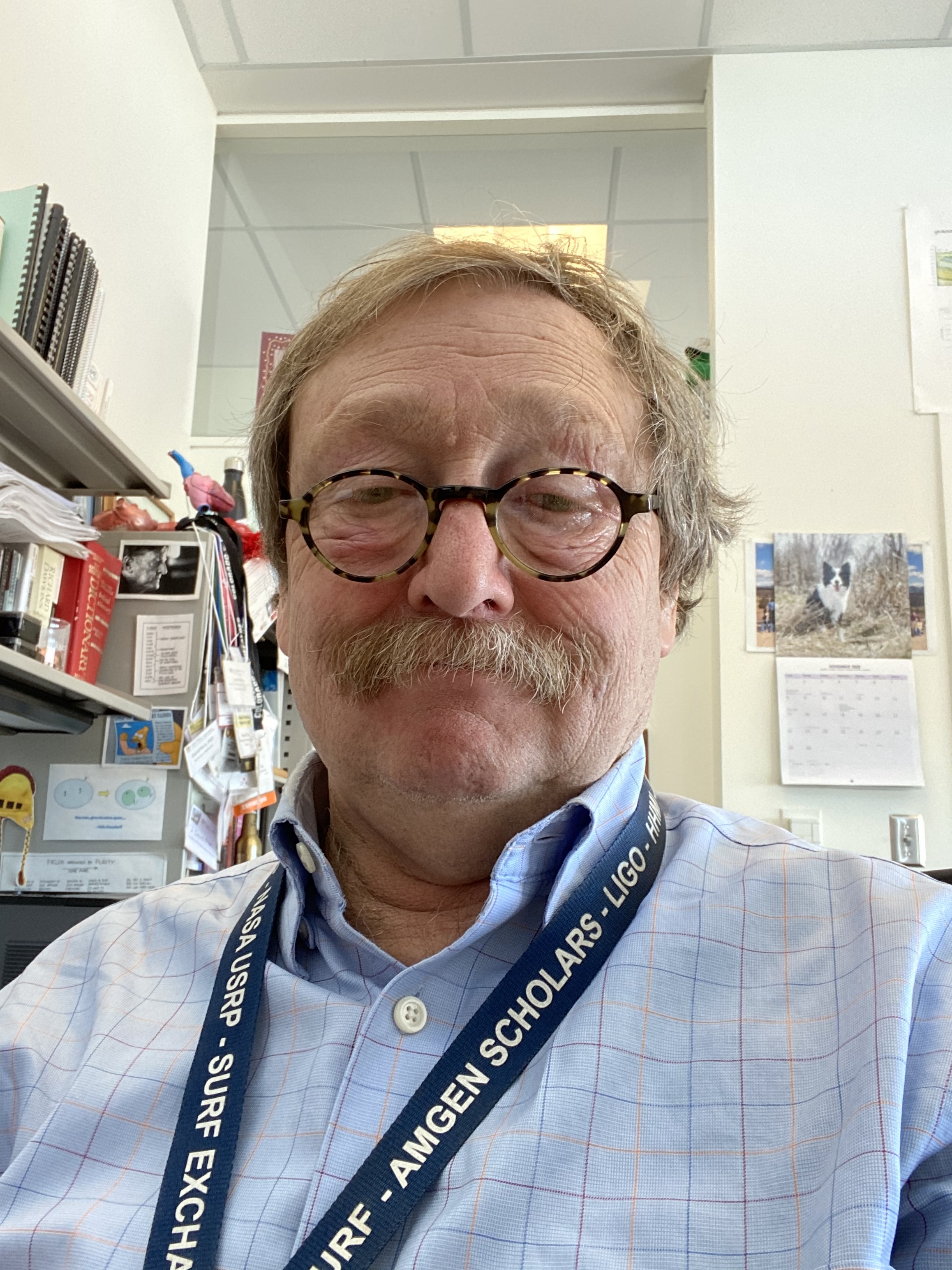
J. David Port PhD
Professor
Research Focus:
Cardiovascular & Pulmonary Biology
Genomics Bioinformatics
Signal Transduction
G-protein linked receptors and their regulation; regulation of mRNA stability.
Email:[email protected]